Description
David Russo is the author of the wildly popular book “Steel Tube Fuselage Construction Techniques” and his second book on aircraft rigging takes the same approach… fact-driven, to-the-point discussions with many clear drawings, diagrams, and photos to ensure understanding. While basic rigging info isn’t too hard to find, this book delves into the previously neglected finer points of the subject, which is important for fine-tuning any aircraft to maximize performance. While many think of “rigging” as setting the angles on the wings and tail, this book also covers rigging the engine, aeroelasticity and mass balancing, landing gear, propellers, and control systems. As the author states in the introduction, “slight changes in rigging are the main reason that two identical rental aircraft have a ten knot difference in speed or a 150 FPM difference in climb rate… even slight out of rig conditions can make instrument flight very tiring in small airplanes”. Since most aircraft builders or owners want to get the most performance and best control characteristics possible from aircraft, whether it’s a screaming aerobatic beast, a sedate family-hauler, or something else entirely, this book is well worth studying both during the construction process and after the aircraft is flying. Mr. Russo does a fine job of breaking what can be a very complicated set of issues down into understandable processes that any reasonably dedicated aircraft owner or airframe mechanic can follow to obtain the best possible performance from their airplane.
Written by Dave Russo, Copyright 2007. ISBN 0-9774896-5-5. Published by Aircraft Technical Book Company. 220 Pages, Softcover.
Chapters include:
Table of Contents
1. Airplane Geometry and Definitions
 Flight Control Systems Flight Control Systems
 Aircraft Axes Aircraft Axes
 Airframe Drawings Airframe Drawings
 Center Line Center Line
 Reference Datum Reference Datum
 Stations Stations
 Buttock Lines Buttock Lines
 Water Lines Water Lines
 Airplane Components and Definitions Airplane Components and Definitions
 Powerplant Powerplant
 Fuselage Fuselage
 Airframe Airframe
 Wing Wing
 Wing Panel Wing Panel
 Wing Section Wing Section
 Wing Planform Wing Planform
 Wing Root and Wing Tip Wing Root and Wing Tip
 Aileron Aileron
 Vertical Stabilizer and Rudder Vertical Stabilizer and Rudder
 Horizontal Stabilizer and Elevator Horizontal Stabilizer and Elevator
 Stabilator Stabilator
 Trim Tab Trim Tab
 Servo and Anti-Servo tabs Servo and Anti-Servo tabs
 Spoilers Spoilers
 Empennage Empennage
 Control Surface Control Surface
 Biplane Parts Biplane Parts
 Airfoil Geometry Airfoil Geometry
 Chord Line Chord Line
 Mean Camber Line Mean Camber Line
 Symmetrical Airfoil Symmetrical Airfoil
 Asymmetrical Airfoil Asymmetrical Airfoil
 Zero Lift Line Zero Lift Line
 Incidence Angle Incidence Angle
 Wash-out Wash-out
 Thrust Line Thrust Line
 Dihedral Dihedral
 Control Deflection Control Deflection
 Decalage (Biplanes) Decalage (Biplanes)
 Stagger (Biplanes) Stagger (Biplanes)
 Gap (Biplanes) Gap (Biplanes)
 Mean Aerodynamic Chord Mean Aerodynamic Chord
2. Aerodynamics and Flight Mechanics Affecting Rigging
 Vectors Vectors
 Aircraft Movement Aircraft Movement
 Rotation Rotation
 Translation Translation
 Straight and Level Flight Straight and Level Flight
 Accelerated and Unaccelerated Flight Accelerated and Unaccelerated Flight
 Aircraft Coordinate Systems Aircraft Coordinate Systems
 Body-Axis Coordinate System Body-Axis Coordinate System
 Wind-Axis Coordinate System Wind-Axis Coordinate System
 Earth-Axis Coordinate System Earth-Axis Coordinate System
 Moment Moment
 Aircraft Control Aircraft Control
 Control Force Control Force
 Control Effectiveness Control Effectiveness
 Control Response Control Response
 Control Power Control Power
 Control Authority Control Authority
 Control Sensitivity Control Sensitivity
 Trim Trim
 Trim and Stability Trim and Stability
 Conventional Aircraft in Pitch Equilibrium (Longitudinal Stability) Conventional Aircraft in Pitch Equilibrium (Longitudinal Stability)
 Slip, Skid, and Sideslip Slip, Skid, and Sideslip
 Inclinometer or Slip/Skid Indicator Inclinometer or Slip/Skid Indicator
 Coefficients Coefficients
 Airfoils/Wing Sections Airfoils/Wing Sections
 Symmetrical Airfoil Symmetrical Airfoil
 Asymmetrical Airfoil Asymmetrical Airfoil
 Lift Curve Slope Lift Curve Slope
 Total Aerodynamic Force Total Aerodynamic Force
 Lift Lift
 Spanwise Lift Distribution Spanwise Lift Distribution
 Lift Curve Slope of a Whole Wing Lift Curve Slope of a Whole Wing
 Drag Drag
 Washout Washout
 Effect of Aircraft Rotation on Lift and Drag Effect of Aircraft Rotation on Lift and Drag
 Stall Stall
 Deflection of Flaps on Wings Deflection of Flaps on Wings
 Effect of Center of Gravity on Aircraft Performance Effect of Center of Gravity on Aircraft Performance
 Performance Aspects of CG Performance Aspects of CG
 Controllability and Stability Aspects of CG Controllability and Stability Aspects of CG
 Effect of Propeller on Airplane Dynamics Effect of Propeller on Airplane Dynamics
 Yawing Moments and Sideslip Yawing Moments and Sideslip
 Pitching Moments Pitching Moments
 Rolling Moments Rolling Moments
 Rigging for Propeller Phenomenon Rigging for Propeller Phenomenon
 Yaw Yaw
 Pitch Pitch
 Roll Roll
 Incidence Angle of the Wing Incidence Angle of the Wing
 Incidence Angle of the Horizontal Stabilizer Incidence Angle of the Horizontal Stabilizer
 Effect of Incidence Changes on Maneuvering Effect of Incidence Changes on Maneuvering
 Minimum Flying Qualities to Be Investigated After Incidence Changes of the Wing or Tail Minimum Flying Qualities to Be Investigated After Incidence Changes of the Wing or Tail
 Stall of the Horizontal Stabilizer Stall of the Horizontal Stabilizer
 Bungee and Spring Centering Systems for the Elevator Control Circuit Bungee and Spring Centering Systems for the Elevator Control Circuit
 Biplane Aerodynamics Biplane Aerodynamics
 Deep Stall Phenomenon Deep Stall Phenomenon
3. Rigging Tools
 Metrology for Rigging Metrology for Rigging
 Accuracy, Resolution, and Repeatability Accuracy, Resolution, and Repeatability
 Symmetric Distribution of Error Symmetric Distribution of Error
 Length of Straightedges Length of Straightedges
 Measuring Instruments Measuring Instruments
 Levels Levels
 Protractors/Clinometers; Propeller Protractor, Protractor Head, or Angle Finder Protractors/Clinometers; Propeller Protractor, Protractor Head, or Angle Finder
 Trammel Bar Trammel Bar
 Plumb Bob Plumb Bob
 Adapters and Aircraft Specific Rigging Tools Adapters and Aircraft Specific Rigging Tools
 Dihedral Board Dihedral Board
 Incidence Board Incidence Board
 Throw Board Throw Board
 Neutral Board Neutral Board
 Control Locks Control Locks
 Thrustline Measurement Tools Thrustline Measurement Tools
 Cable Tensiometer Cable Tensiometer
 Wire Tensiometer Wire Tensiometer
 Streamlined Flying Wire Tool Streamlined Flying Wire Tool
 Torque Seal Torque Seal
 Turnbuckle Holder Turnbuckle Holder
 Surveying Transit and Similar Equipment for Rigging Surveying Transit and Similar Equipment for Rigging
 Slip/Skid Indicator Slip/Skid Indicator
 Yaw String Yaw String
 Attitude Indicator Attitude Indicator
 Turn Coordinator/Turn and Bank Indicator/Turn and Slip Indicator Turn Coordinator/Turn and Bank Indicator/Turn and Slip Indicator
 Compass and Heading Indicator Compass and Heading Indicator
|
|
4. Factors in Rigging
 Control Friction Control Friction
 Control Cable Tension Control Cable Tension
 Adjusting Cable Tensions Adjusting Cable Tensions
 Control Wear or Sloppiness Control Wear or Sloppiness
 Control Stops Control Stops
 Control System Operational Tests Per FAR 23.683 Control System Operational Tests Per FAR 23.683
 Gap Seals Gap Seals
 General Control Checks General Control Checks
 Hardware Encountered in Rigging Hardware Encountered in Rigging
 Rod Ends Rod Ends
 Turnbuckles Turnbuckles
 Clevis Forks Clevis Forks
 Flying Wires/Tie Rods Flying Wires/Tie Rods
 Check or Jam Nuts Check or Jam Nuts
 Stall Strips Stall Strips
 Fixed Trim Tabs Fixed Trim Tabs
 Spades Spades
 Vortex Generators Vortex Generators
 Type Certificate Data Sheets Type Certificate Data Sheets
 Setting Up Setting Up
5. Initial Rigging
 Setting the Fixed Surfaces Setting the Fixed Surfaces
 Leveling the Fuselage Leveling the Fuselage
 Setting the Vertical Stabilizer Setting the Vertical Stabilizer
 Setting the Wing Setting the Wing
 Setting the Thrustline Setting the Thrustline
 Setting the Horizontal Stabilizer Setting the Horizontal Stabilizer
 Setting the Slip/Skid Indicator Setting the Slip/Skid Indicator
 Setting the Movable Surfaces Setting the Movable Surfaces
 Aileron and Elevator Aileron and Elevator
 Elevator Trim Elevator Trim
 Rudder Rudder
 Flaps Flaps
 Setting the Other Trims Setting the Other Trims
 Bungee and Spring Centering Systems for Primary Flight Controls Bungee and Spring Centering Systems for Primary Flight Controls
 Aileron/Rudder Interconnect Aileron/Rudder Interconnect
 Wheel Fairings Wheel Fairings
 Wing Tips Wing Tips
 Setting Wire Tensions Setting Wire Tensions
 Landing and Taxi Lights Landing and Taxi Lights
 Compass Compass
 Testing the Rig Testing the Rig
6. Correcting Rigging Problems
 Straight and Level Flight Straight and Level Flight
 Bendable Trim Tabs Bendable Trim Tabs
 Stalls Stalls
 Maneuvering Flight Maneuvering Flight
 High Speed Flight High Speed Flight
7. Vibration
 Elements of Vibration Elements of Vibration
 Amplitude Amplitude
 Period and Cycle Period and Cycle
 Frequency Frequency
 Classes of Vibration Classes of Vibration
 Natural Frequency Natural Frequency
 Damping and Loss Factor Damping and Loss Factor
 Resonance Resonance
 Vibration of Rotating Parts Vibration of Rotating Parts
 Measurement of the Amplitude of Vibration Measurement of the Amplitude of Vibration
 Displacement Displacement
 Velocity Velocity
 Acceleration Acceleration
 Relationship Between Displacement, Velocity, and Acceleration Relationship Between Displacement, Velocity, and Acceleration
 Relationship between Amplitude Measurement and Frequency Relationship between Amplitude Measurement and Frequency
 Structural Fatigue Structural Fatigue
 Vibration Dampeners/lsolators Vibration Dampeners/lsolators
 Noise Noise
 Aircraft Vibration Aircraft Vibration
 Sources of Aerodynamic Vibration Sources of Aerodynamic Vibration
 Aircraft Skin Aircraft Skin
 Cables, Hoses, Tubing, and Antennas Cables, Hoses, Tubing, and Antennas
 Instrument Panels Instrument Panels
 Engine Mounts and Suspension Systems Engine Mounts and Suspension Systems
 Powerplant Vibration Powerplant Vibration
 Engine Vibration Engine Vibration
 Propeller Vibration Propeller Vibration
 Airframe/Powerplant Resonance Airframe/Powerplant Resonance
 Troubleshooting Powerplant Vibrations Troubleshooting Powerplant Vibrations
8. Powerplant Rigging
 Propellers Propellers
 Setting Blade Angle Setting Blade Angle
 Static Balancing Static Balancing
 Blade Tracking Blade Tracking
 Dynamic Balancing Dynamic Balancing
 Engine Engine
 Idle Speed Idle Speed
 Mixture Mixture
 Controls Controls
 Turbo/Supercharger Turbo/Supercharger
 Propeller and Propeller Governor Settings Propeller and Propeller Governor Settings
 Adjusting Ground Adjustable Propellers for Performance Adjusting Ground Adjustable Propellers for Performance
9. Aeroelasticity and Control Surface Mass Balancing
 Mass Balancing Mass Balancing
 Static Mass Balancing Static Mass Balancing
 Dynamic Mass Balancing Dynamic Mass Balancing
 Balancing Terminology and Mathematics Balancing Terminology and Mathematics
 Measuring the Balance and Attaching Weights Measuring the Balance and Attaching Weights
10. Landing Gear Rigging and Vibration
 Wheel Alignment Wheel Alignment
 Toe Toe
 Camber Camber
 Caster and Trail Caster and Trail
 Rigging the Gear Rigging the Gear
 Landing Gear Problems Landing Gear Problems
 Wheels and Tires Wheels and Tires
 Brakes Brakes
 Landing Gear Landing Gear
 Other Problems Other Problems
 Preloading Wheel Bearings (Tapered Roller Bearings) Preloading Wheel Bearings (Tapered Roller Bearings)
11. Biplane Rigging
 Level the Fuselage Level the Fuselage
 Wing Assembly Wing Assembly
 Wing Rigging Wing Rigging
 Rigging the Center Section Rigging the Center Section
 Rigging the Wings Rigging the Wings
Appendix A – Math for Rigging
 Finding the Chord of An Arc Finding the Chord of An Arc
 Trigonometric Functions Trigonometric Functions
References |
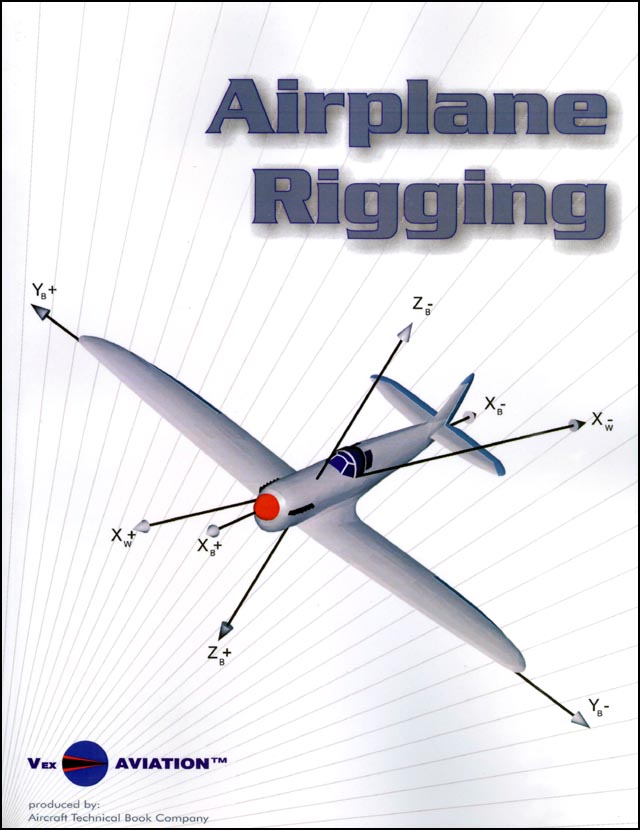
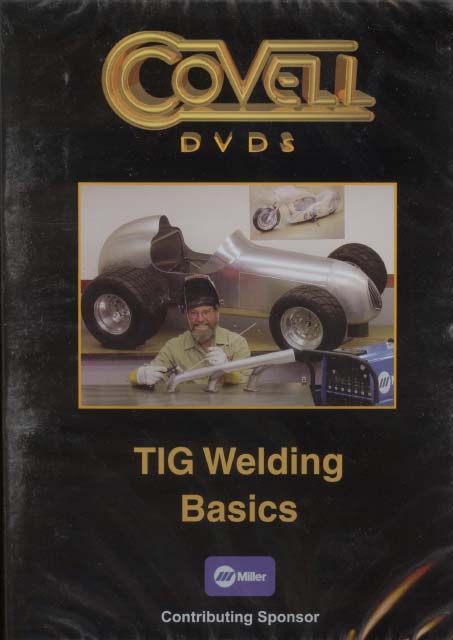
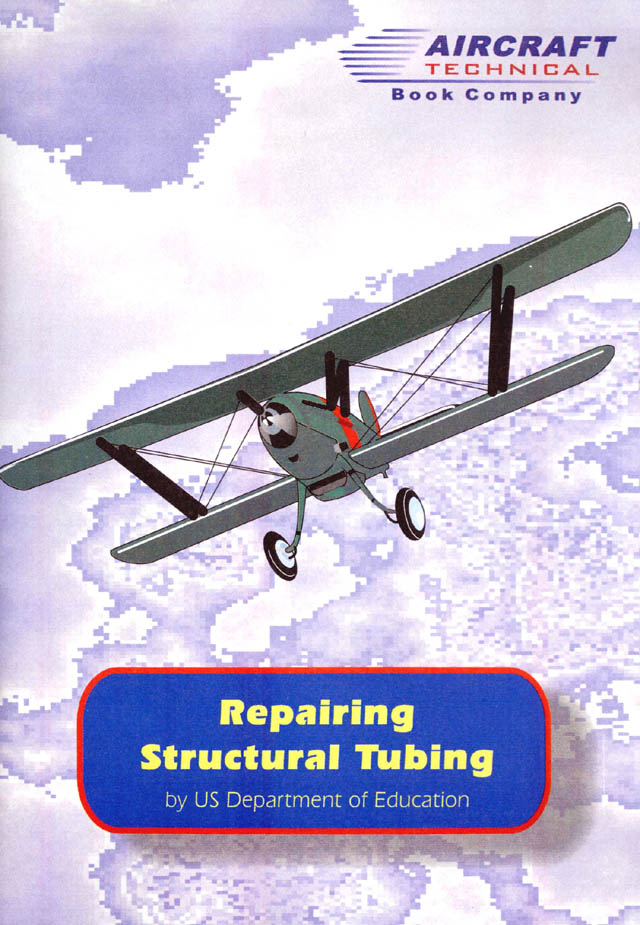
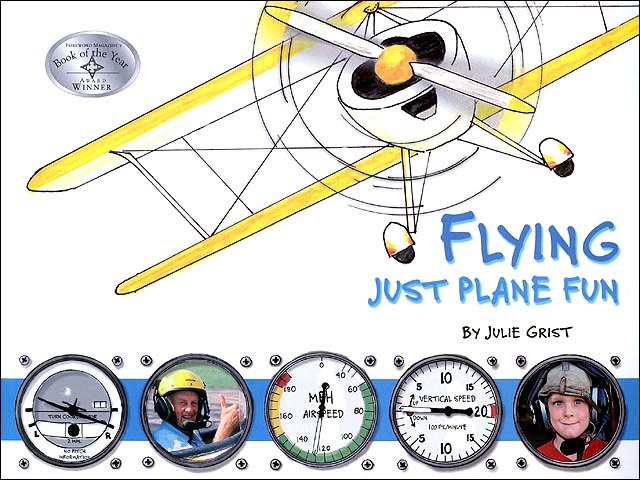
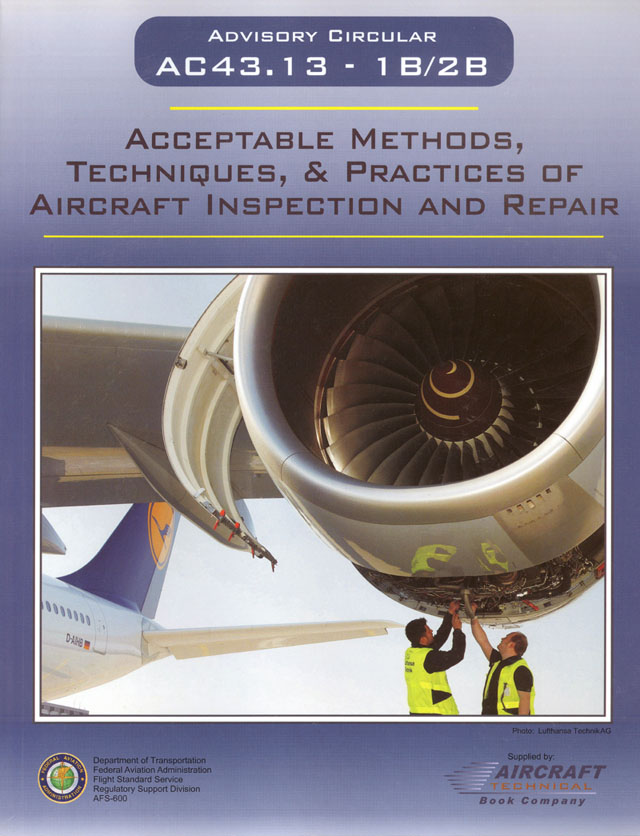
Reviews
There are no reviews yet.